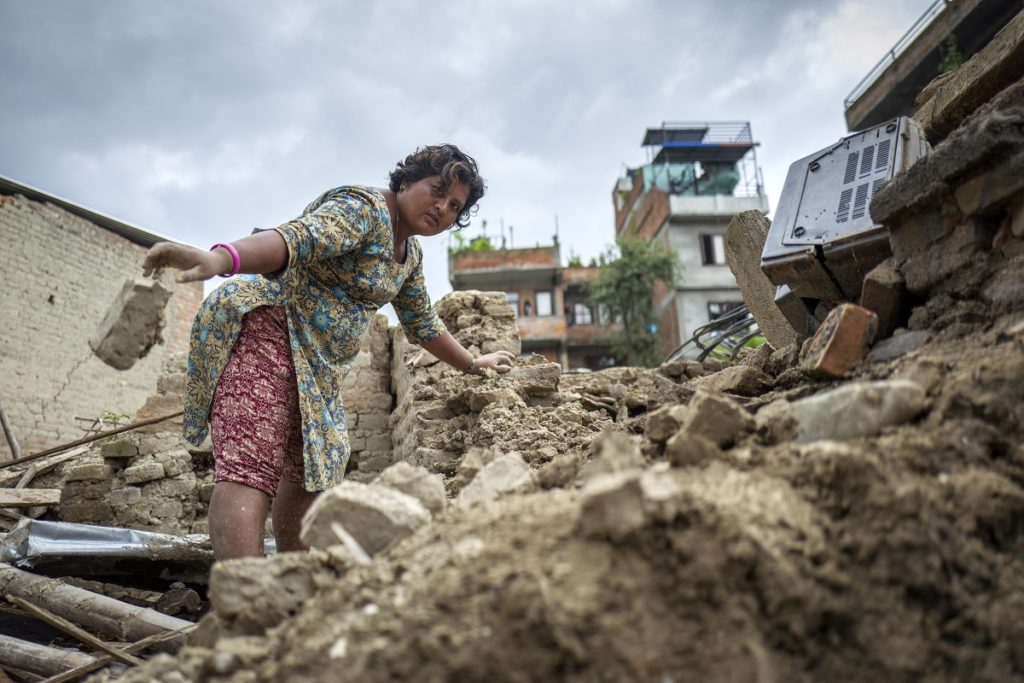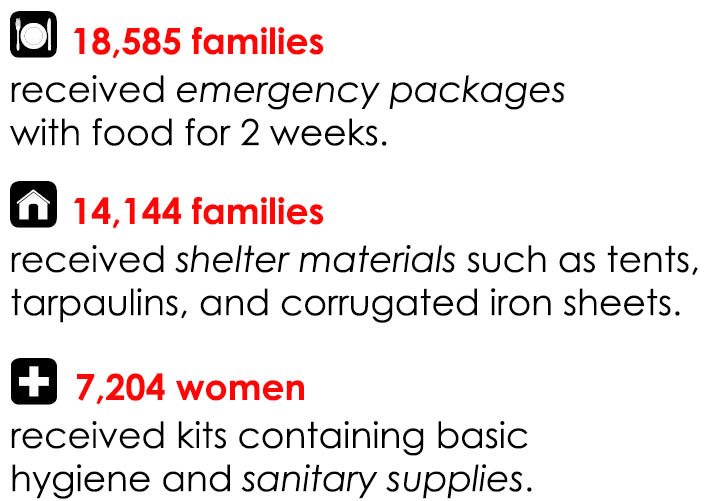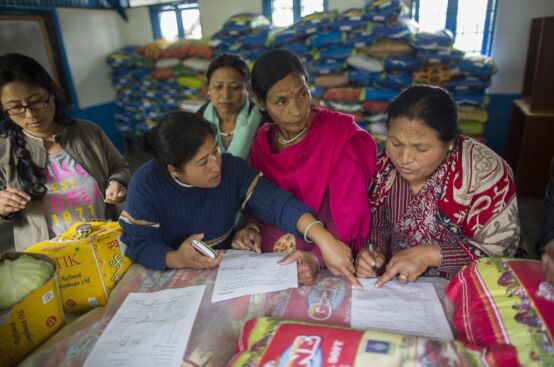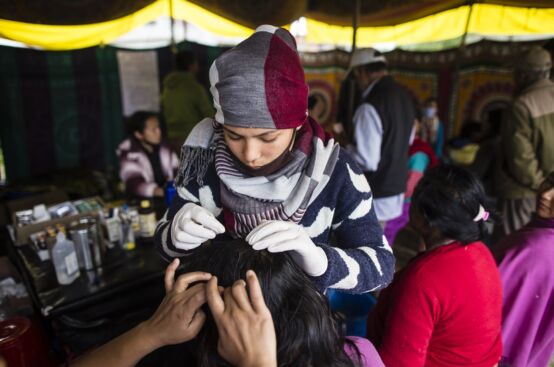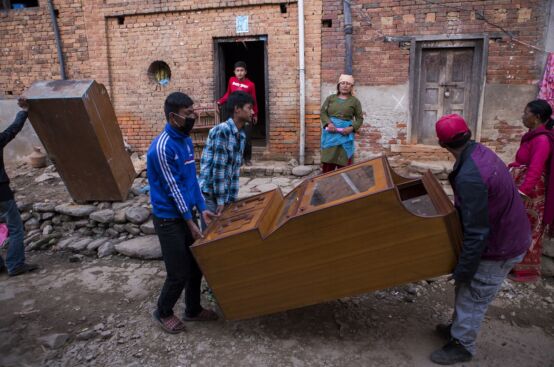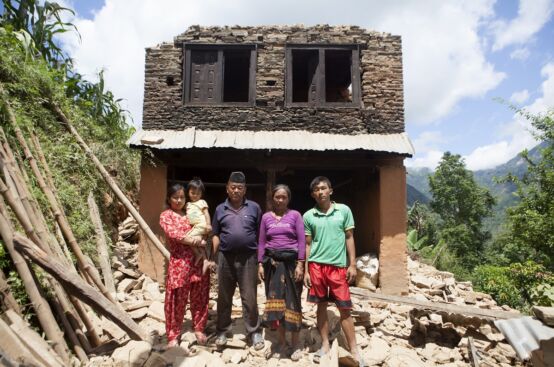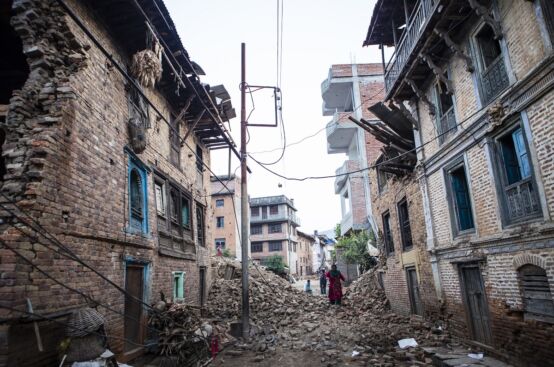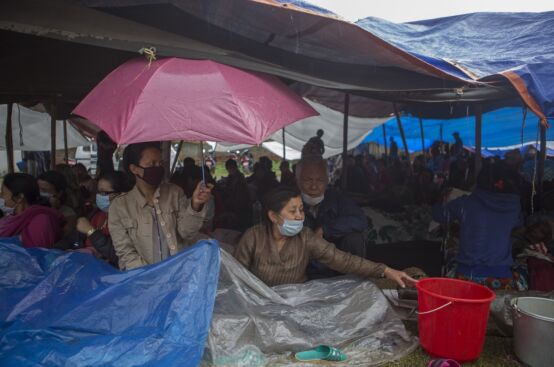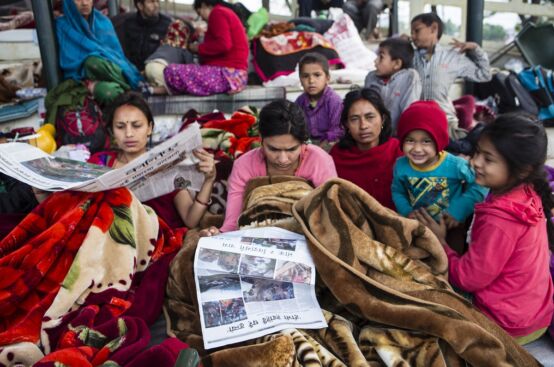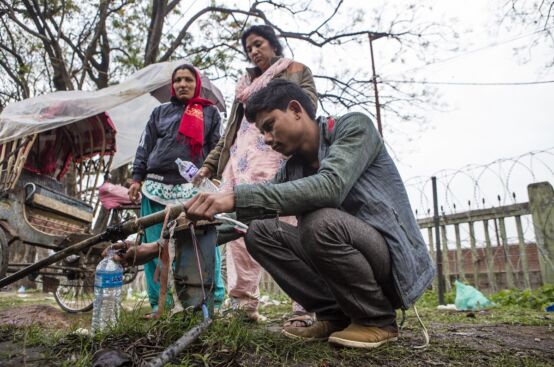On April 25, 2015, Nepal was hit by a huge earthquake. Thousands of people lost their lives and many more were injured. Homes and businesses were destroyed, schools and hospitals were damaged, and fields of crops disappeared. Millions of people were left traumatized and without access to basic services.
Within hours, we started working with our local women’s and youth networks. They told us what people needed most and when we provided food, blankets, tarpaulins, and health kits, they distributed them to the most vulnerable people in their communities. Mobilizing our local networks, we asked what communities needed most, and made sure they got it.
Our local-led response, carried out by people who are known and trusted within their communities, reached 118,000 people, providing a range of emergency supplies and trauma support. But our work doesn’t end there.
Since the earthquake on April 25, we have reached 118,885 people in Nepal, providing emergency support including:
Laxmi and her family lost all of their livestock in the earthquake. Her goats and buffalo provided a low but stable income for the family. Immediately after the earthquake, ActionAid gave Laxmi tarpaulins, blankets, some cash and the materials needed to construct a stable but temporary home that they can live in for up to two years.
But Laxmi and other women in her village knew that in order to rebuild their lives they needed their own income. They approached ActionAid for a small investment to set up a mushroom farm, which is now providing an income for 10 women from the village.
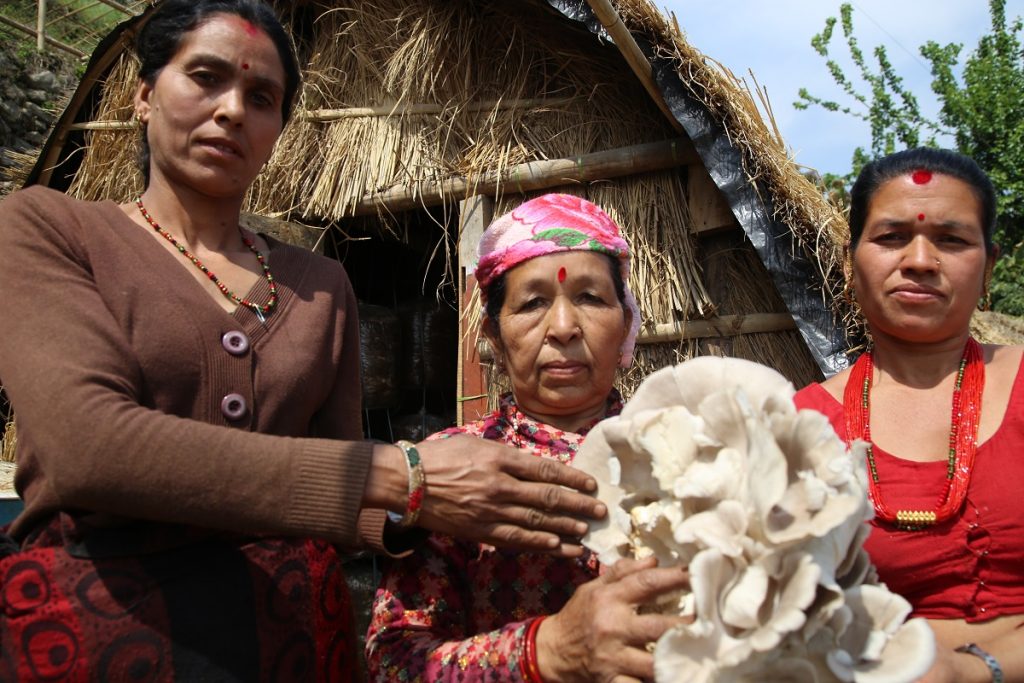
Laxmi (right) helped set up a mushroom farm where 10 women now work. Photo: Jo Harrison/ActionAid
Families in Nepal are continuing to rebuild their lives and we’re making sure they have the tools they need to do this. Our long-term recovery effort is focusing on ensuring women’s safety and dignity, by combatting gender-based violence and making sure they have access to public services, education and land to live and farm on.
We’re continuing to construct weather proof housing, and providing job training for adults so that they can build sustainable incomes. We’re also continuing to support people in Nepal to get their voices heard, so that their government provides what they need to build a safer and more sustainable future for themselves and their families.

